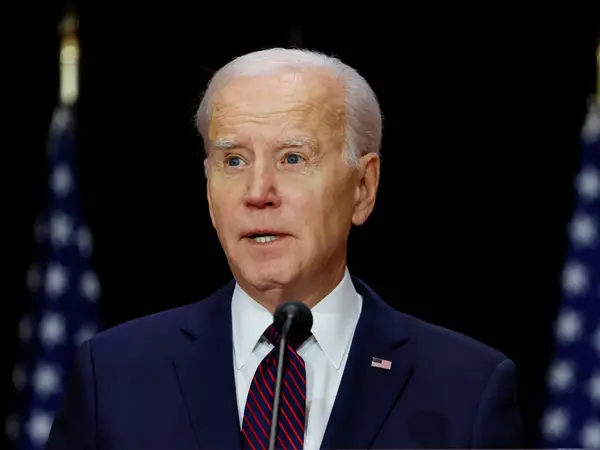As Iran’s tit-for-tat war with the US becomes more vocal, the Biden administration’s hand is being forced to take firmer action against the regime and its proxies.
Following an Iranian attack on US troops, Gabriel Noronha, the former State Department Iran envoy tweeted: “Iran cannot match us on the escalation ladder. But as long as we play tit-for-tat with their proxies, Iran gets a pretty good deal.
“If Iran wants to kill Americans overseas and at home, we could make them pay where it hurts them: their pocketbooks.”
In a strong warning to the US, which carried out a rare strike on Iranian-linked bases in Syria last week, Iran has openly defended its militia there, its regional proxies an issue on which it prefers to stay silent.
Foreign ministry spokesperson Nasser Kanaani told state media last week: "Iran's military advisers have been in Syria at the request of the Syrian government to help this country fight terrorism, and shall remain by Syria's side to help establish peace, stability and lasting security.”
Supreme National Security Council spokesman, Keyvan Khosravi, responded with equally strongly worded threats, showing a united front in allegiance with its militia in Syria. “Any pretext to attack bases created at the request of the Syrian government to deal with terrorism and Islamic State elements in this country will be met with an immediate counter-response,” he said.
It is an interesting turnaround, not ignored by the world’s Iran watchers. Jason Brodsky, the policy director at United Against A Nuclear Iran, tweeted: “In the past these threats came from an operations room with a vague name “Allies of Syria”, which preserved plausible deniability for Tehran. But in a sign of how emboldened Islamic Republic feels Iran’s SNSC is going public quite clearly with threats.”
The Syrian Observatory for Human Rights claims the US strike killed eight pro-Iranian fighters. Thursday’s attack was one of the deadliest exchanges between the US and Iranian-aligned forces in years, retaliation for a drone drone attack that left one American contractor dead and another wounded along with five injured US troops.
Semantics on the nature of the attack were typically murky. Washington said the drone used in the attack was of Iranian origin while Iran claimed the site the US hit was ‘civilian’, a rural development centre and a grain centre near a military airport.
Speaking on a state visit to Canada last week, Biden reiterated that “the United States does not, does not seek conflict with Iran,” but said Iran and its proxies should be prepared for the US “to act forcefully to protect our people” and warned “we are not going to stop”.
Biden chooses his words carefully. While Tehran’s growing entrenchment in Syria has drawn regular Israeli air strikes, American aerial raids are rare. The US has been raising the alarm about Iran's drone program but critics say the Democrats are sitting tight to try and cling on to the last shreds of hope for reviving the nuclear deal, the JCPOA, which collapsed last year amidst Iranian intransigence.
Iran is obviously undeterred by threats to crack down on the regime’s militia, and Biden’s critics are pushing for more affirmative action.
When doing the numbers, it is clear Biden is more than reluctant to step into the military arena with Iran, which is not shy of using its proxies around the region. In spite of a recent detente with archenemy Saudi Arabia, the Houthis in Yemen have continued with military action against forces led by Saudi, which could yet jeopardize the path to peace for Iran and its powerful neighbor.
Of 78 attacks on US facilities under the Biden administration, this is a rare retaliation to have taken place. However, although US forces stationed in Syria have been attacked with drones before, deaths too, are rare, attacks more a show of force than a full-blown confrontation.
The US Department of Defense claimed its response last week was “proportionate”, aimed at minimizing casualties, while critics such as Noronha slammed it as “weak. “Just hours after the Pentagon said they were trying to minimize Iranian casualties, their forces attacked three of our bases. Weakness is deadly and provocative,” he tweeted.
